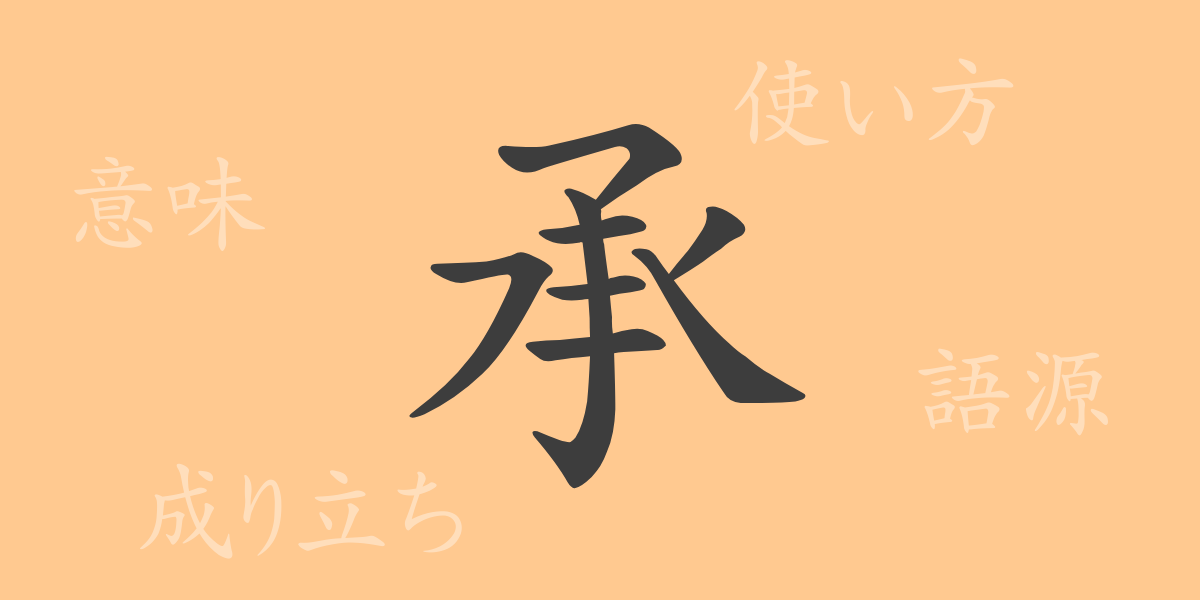The richness of the Japanese language is beautifully encapsulated in its use of kanji, each carrying its own unique history and meaning. One such kanji is ‘承’ (しょう), which is deeply rooted in Japanese life and culture. This article explores the origins, meanings, usages, and the role of ‘承’ in Japanese phrases and idioms, unveiling the depth of this character.
Origins of 承 (しょう)
The kanji ‘承’ originated in ancient China, symbolizing the act of receiving with one’s hand. Initially used to mean ‘to receive,’ it gradually came to encompass ‘to inherit’ or ‘to take over.’ It also includes nuances of being ready to accept, often used in classical literature to express such sentiments.
Meaning and Usage of 承 (しょう)
‘承’ primarily means ‘to receive’ or ‘to inherit.’ In business contexts, it is commonly used in phrases like ‘承知しました’ (しょうちしました, I understand) or ‘承諾する’ (しょうだくする, to consent), indicating an understanding and agreement to another’s intentions. In narratives or traditions, it appears in phrases like ‘承前’ (しょうぜん), meaning ‘following from what was previously stated.’
Readings, Stroke Count, and Radical of 承 (しょう)
The kanji ‘承’ is frequently used in Japanese, with distinctive readings and structural features.
- Readings: On’yomi (Sino-Japanese reading) is ‘しょう’, Kun’yomi (native Japanese readings) are ‘うけたまわる’, ‘ささぐ’, ‘ついで’.
- Stroke Count: ‘承’ has 8 strokes.
- Radical: The radical is ‘扌’ (てへん), associated with the hand.
Phrases and Proverbs Using 承 (しょう) and Their Meanings
There are numerous idioms and phrases involving ‘承’. Here are a few examples and their explanations:
- 承知の上 (しょうちのうえ): Fully aware and agreeing with the circumstances or conditions.
- 承諾 (しょうだく): To accept someone’s request or opinion.
- 承前 (しょうぜん): Based on what has been mentioned before.
- 承服 (しょうふく): To comply with someone’s opinion or order.
- 伝承 (でんしょう): The oral or written transmission of traditions, culture, or knowledge.
Conclusion on 承 (しょう)
The kanji ‘承’, with its long-standing heritage, is utilized in various expressions across the Japanese language. Its form represents the action of the hand receiving, and its meaning signifies inheritance. From business to everyday conversation and cultural transmission, ‘承’ plays a vital role in Japanese communication. Through the idioms and phrases introduced here, we hope you have gained a deeper appreciation of the expressive power of ‘承’.

























